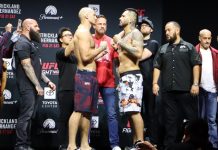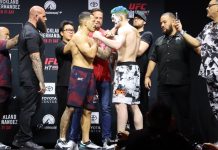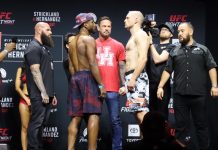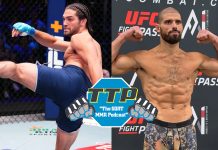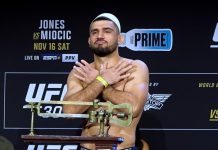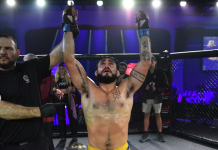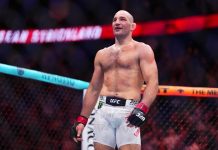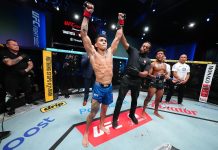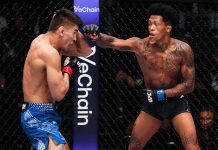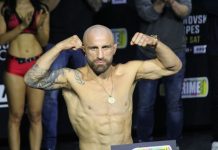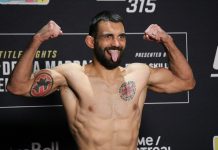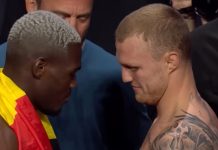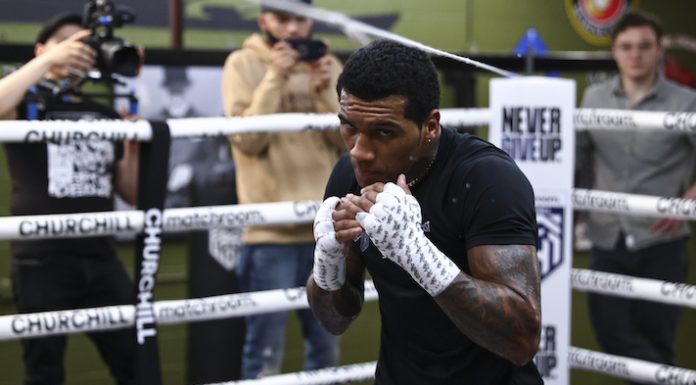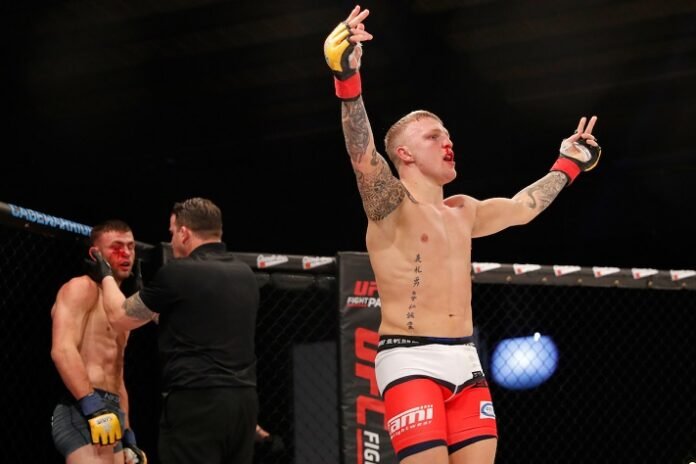
More so than ever, the fight game is about more than just the skills that a given fighter possesses. While there has always been a need to be a draw in MMA to get a big fight, it seems even more commonplace in the current age that people ask if a fighter is a big enough draw to get that fight, or if another fighter would accept a fighter with that low of a profile.
That concept is not lost on the young fighters coming into the sport. Take former Cage Warriors double champion and recent UFC signee Mason Jones, for example. Although only 25-years old, he’s thought about how to sell himself for a decade, at least.
“I always like to think of it as products— we’re just products, that’s all we are,” Jones explained. “And being a product is not about how well you perform, it’s about how marketable you are and how you sell yourself.”
And for Jones, that product has been in development since he was a pre-teen. During his formative years he, along with his team of coaches that are still with him to this day, set a path for him to follow, always knowing the end destination.
“The UFC has been an inevitability for me. I’ve known I was going to the UFC since I was twelve years of age. This is something I’ve worked towards for a long, long time. I started training at seven years of age and by the time I was twelve I knew I would be good enough to do it,” he said. “I had to set my route the right way and do the right things, and that’s what I’ve done.”
That path, of course had to start somewhere, and for Jones it was on the pitch. Looking for an outlet for a lot of pent up energy and aggression in his youth, his parents turned to soccer, which instantly yielded some interesting results.
“It’s quite funny actually. My parents put me in football, same with my brothers (or soccer, sorry for the Americans), and I had no talent for it at all. All I wanted to do was try and tackle people to the ground and slide tackle people,” he laughed. “My dad used to say, even as a kid it was just embarrassing.”
The progression from there was a natural one. If there is a sport that bridges the gap of soccer and MMA, it must be rugby. So his parents attempted that as a pit stop on the way to his eventual destination.
“[My dad] took me from there and put me in rugby, obviously for Wales rugby is a national sport. I was good at tackling and good at the contact, but anything to do with passing the ball I was terrible at,” Jones said. “He said as a kid all I wanted to do from the time I could walk was fight. He said I was running around pretending to be a samurai with swords or I was trying to fight people as a ninja.”
So that is where the journey really took off. Jones would get started in judo as his first martial art and that’s where his coaches began to lay out the path to Cage Warriors glory and a UFC contract. Both he and his coaches, though, recognized that they needed to build a fighter that was not just one that could demolish the competition, but do so in a way that people would want to watch.
“I’ve competed high level in judo competitions for a long, long time. Then I moved on, just before the Commonwealth Games I left judo. After qualifying for the games I took a little bit of an injury and decided that I needed to step away,” he said. “Rather than go straight into MMA then at 17-18 years of age, I decided I needed to work on my striking a bit more because obviously striking sells fights.”
Even before he had stepped foot into a cage, Jones had made sure that he was the marketable product that could one day be sold on pay-per-view. Despite his aptitude for grappling and his ability to take all of his opponents down, he wanted to make sure people would come to watch him knock someone out too. So from there he took three boxing matches, all of which he won. While he attempted to take far more, fights were cancelled with fighters pulling out after seeing his highlights.
Although dominance and selling himself has always been the dual goal in the back of Mason Jones’ head, making sure the product was authentically him was the most important factor to achieving these goals. Through all of the carefully planned steps that he took, Jones made sure that he and his team were building something that was uniquely Mason Jones.
“A lot of people get a stupid idea that they need to copy something that works and there is a shortcut to it. That’s a shortcut to success, but it’s not going to take you any further than the first roadblock that you hit,” he said. “You have to build your own profile and build your own characteristics and tell yourself who you’re going to be. That’s why I’m going to do— I’m going to go in there with my own flair and my own style. I’m going to do what I do best and that’s be the best in the world.”
The product officially comes to the big market this Wednesday as part of the UFC Fight Island 8 prelims, where Jones will fight Mike Davis.
You can hear the complete audio of this interview below at 2:38.
[soundcloud url=”https://api.soundcloud.com/tracks/964749049″ params=”color=#ff5500&auto_play=true&hide_related=false&show_comments=true&show_user=true&show_reposts=false&show_teaser=true” width=”100%” height=”166″ iframe=”true” /]


